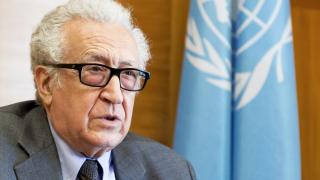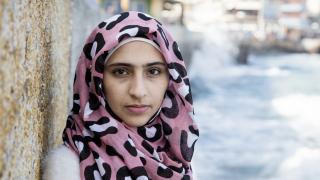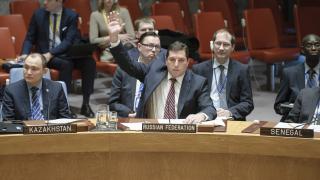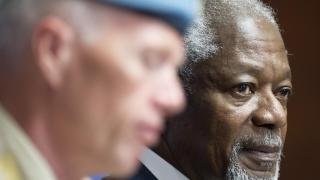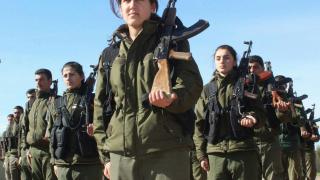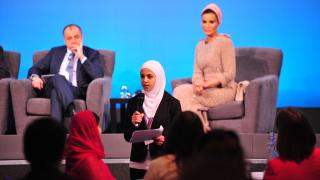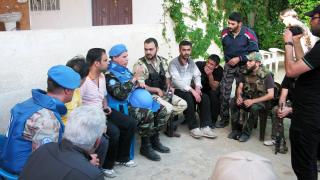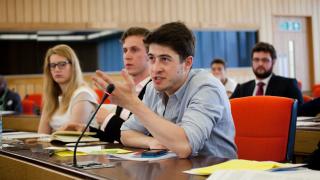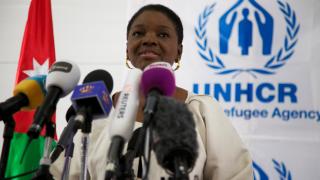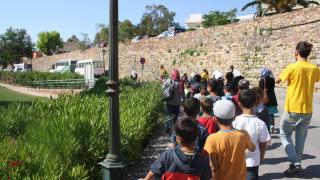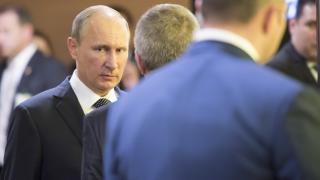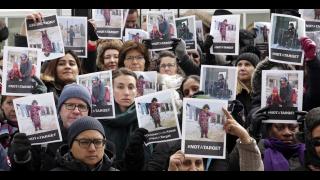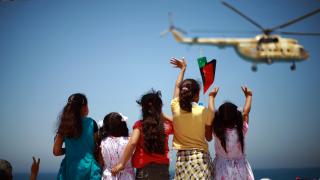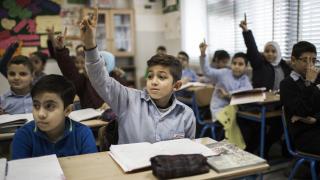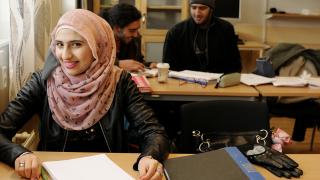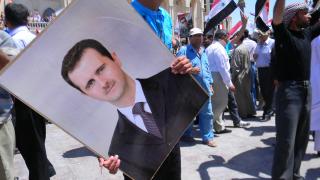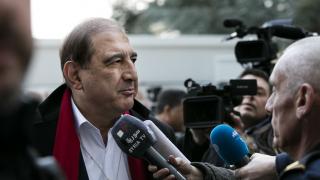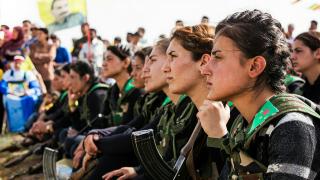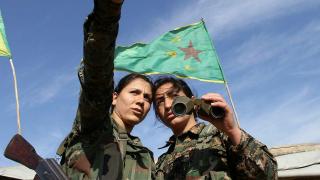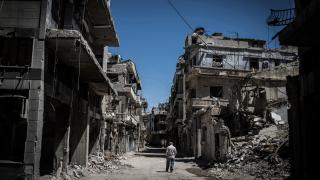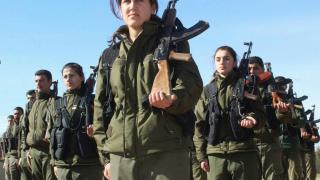
Syria is one of the most striking examples of how conflicts affect civilians more than they do the military. This has made Syrian women and girls extremely vulnerable to the negative impacts of the armed conflict. They are exposed to physical, psychological and sexual violence, making them victims of marginalisation, poverty and suffering. The threat of terrorist groups to women and girls is also greater in regions of conflict. It is important to identify what tools are available to protect them both
before conflict erupts, and during and after a war.
Both men and women in Syria have for a long time lived under the pressure of an authoritarian government. In addition, women are under more pressure than their male compatriots; they do not have a natural place in public or political life which offers them a platform from where they can fight for gender rights. This means that should any peace agreement be signed in Syria, it would still be necessary to involve Syrian women in the implementation.
But first we need to get there. Women are still under-represented in peace negotiations. In part, this is because the security of women and girls is generally regarded as a women’s issue rather than a security issue. However, the participation of women in security operations and in peace processes is a fundamental part of creating a sustainable peace. Very few women participated in the Geneva peace talks: the process whereby the delegations of the Syrian Government and its oppositions have meetings with the UN. This fact is a reflection of a traditional male dominance of the Syrian public sphere.
UN Security Council Resolution 1325, adopted in 2000, was a milestone in the area of women, peace and security. This resolution has been followed by a number of other resolutions to confirm special attention to women in armed conflict. Women’s active participation is the cornerstone of Resolution 1325. The resolution “reaffirms the important role of women in the prevention and resolution of conflicts, peace negotiations, peacebuilding, peacekeeping, humanitarian response and in post-conflict reconstruction and stresses the importance of their equal participation and full involvement in all efforts for the maintenance and promotion of peace and security”. Yet, as Syria shows, women are still largely absent when it comes to decision-making.
Women suffer disproportionately in modern wars, but they are also often leading actors in building security. This is not reflected in peace negotiations. It is often stated that this is because peace needs to be negotiated first, before democracy can be installed. Only then can women start demanding their rights. However, it is too late to work towards women’s rightful place in society after a peace has been achieved; women’s rights and gender equality are at the core of political transition processes. The calls from Syrian women to place gender equality at the heart of Syria’s transition process are entirely valid.
I have met a good number of Syrian women, both within the framework of the intra-Syrian peace talks in Geneva and outside at meetings which have been organised with the support of the Euromed Feminist Initiative. At those meetings, Syrian women activists and researchers have presented their thoughts to Syrian politicians, activists and lawyers on how to include gender aspects into a future Syrian constitution. The result of the discussions is the handbook: ABC for a Gender Sensitive Constitution. I quote from the handbook: “A gender sensitive constitution is especially beneficial during
transitions to democracy. Women can be crucial in bringing about the fall of authoritarian regimes and facilitating the transition to democracy itself.” The example of Tunisia is mentioned, where women were both organisers and demonstrators in protests during the Jasmine Revolution in 2011, after which they demanded full recognition during the constitution-making process.
What are the implications of Resolution 1325 in the Syrian case? Well, it is the first time in a UN-led peace process that women have been allotted a space in relation to the peace talks – albeit not in the formal negotiations. This is positive. A Women’s Advisory Board (WAB) was set up, and it reflects a diversity of women’s perspectives and organisations in Syria and aims to ensure that the voices, concerns and experiences of Syrian women from different backgrounds are integrated into the design and content of the talks. They are thereby given a chance to articulate their concerns and ideas and to present recommendations. Resolution 1325 calls on all actors involved, when negotiating and implementing peace agreements, to adopt a gender perspective, including the special needs of women and girls during repatriation and resettlement and for rehabilitation, reintegration and post-conflict reconstruction. The WAB means that this may actually happen.
Research has pointed to the fact that there is a positive correlation between the success of talks and agreements and occasions when women participate in peacemaking, constitution-making and national dialogues. Women’s participation can shift the dynamics by bringing new issues to the table, strengthening linkages to root causes of conflict and promoting more sustainable peace.
In order to be effective, it is important that the WAB is engaged in all issues that are discussed in formal talks, including questions of ceasefire, the use of indiscriminate weapons, the political transition, governance, the release of prisoners and the humanitarian situation – just to mention a few among all the topics which will have to be discussed in depth. A gender perspective needs to be integrated in all aspects of any future peace agreement.
But will the women be listened to? Will their voices be loud enough to have an influence on the talks in a meaningful way and can they make a difference? Or will their presence just be window-dressing for the sake of it? The same goes for the formal delegations participating in the intra-Syrian talks. These have previously included three women each out of 15 members of the delegations. This is a ratio of 20 per cent, which is considered relatively high for talks of this kind. But are the women themselves motivated enough and able to fight for gender issues? A closer look at that question will decide whether they need assistance from outside or not.
In addition to the WAB there is another group of Syrian opposition women who have been endorsed by the High Negotiating Committee (the central decision-making body of an umbrella group of opponents to President Assad).This is the Women’s Advisory Committee (WAC) and it is comprised of 20–25 professional women working on human rights, humanitarian, legal and communication issues. They actively support the opposition delegation to the talks, which, after much pressure from these women, agreed to table the WAC’s proposal for a women’s quota for the seats in any future Syrian Parliament.
In contrast, the women inside the delegation representing the Syrian Government seem to have difficulties in presenting gender-related issues within their own delegation. There is, to my knowledge, no women’s group supporting the negotiators representing the Syrian Government. However, the opposition is an extremely diverse gathering of both armed rebels and political opponents, Islamists and secular representatives. It is likely to be quite difficult for women to successfully secure support from all sides of the opposition movement when it comes to proposals which focus on gender.
The inclusion of women in the Syrian peace process – both during the negotiations and in the implementation of a peace agreement – is a prerequisite for enabling a negotiating climate where the interests of ordinary Syrians and their communities will be highlighted. The Syrian population deserves the kind of settlement that can only come from the inclusion of women on the road to peace.
Photo: Kurdish fighters of the YPG civilian protection forces. Credit: Kurdishstruggle/CC

